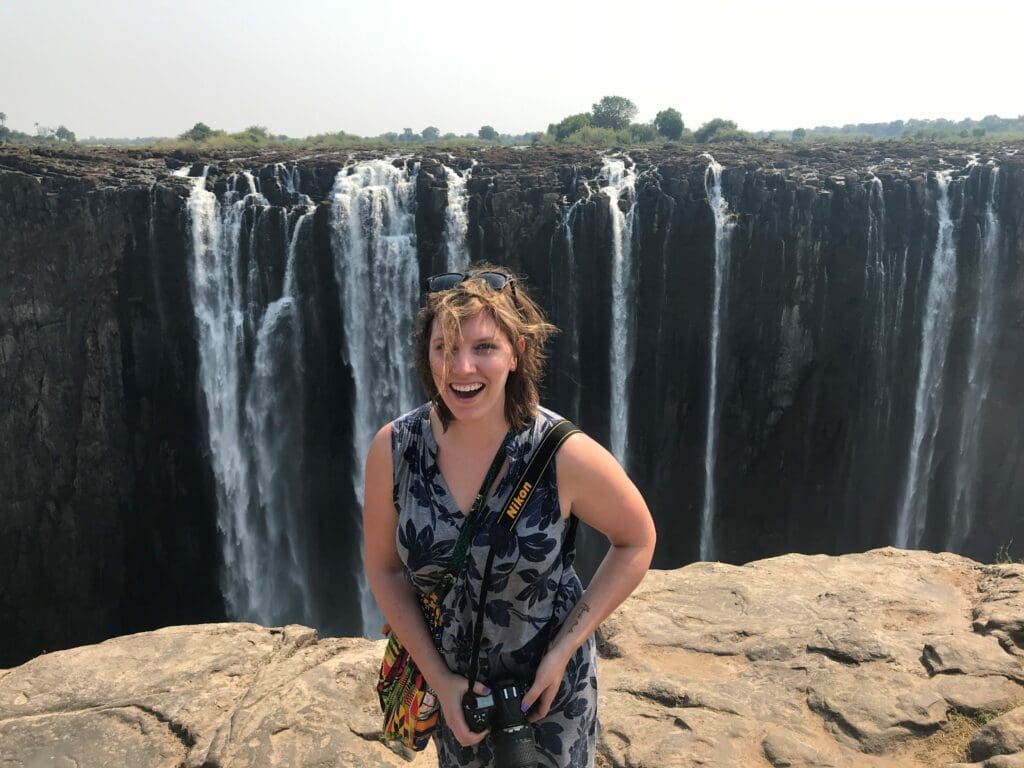World Humanitarian Day Q&A with Ashley Baxstrom
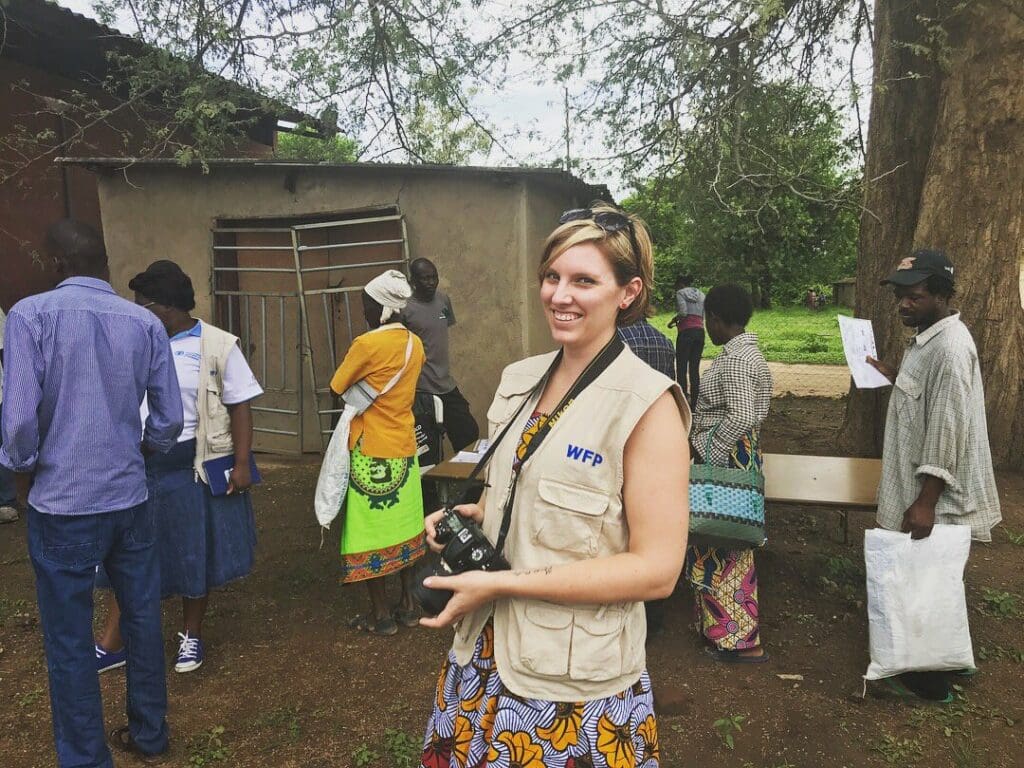
World Humanitarian Day is held on August 19 each year to honor aid workers who risk their lives in humanitarian service in crises around the world. This year, the World Food Programme is paying tribute to women in the field. And today, World Food Program USA is featuring Ashley Baxstrom, Head of Donor Relations at WFP Zimbabwe. Check out the Q&A with her below to get the scoop on what it’s like to be an American Humanitarian in the field.
1. What is your background?
I have a master’s in Religious Studies and a background in journalism and new media. Before joining WFP, I worked for five years in the office of the UN Secretary-General (Ban Ki-moon) on issues of global food policy, including issues like food security, nutrition and climate change, and leading the Zero Hunger Challenge campaign (#ZeroHunger!).
2. How/why did you start working with WFP?
I had an internship at WFP HQ in Rome when I was in college and studying media. Many years later, those connections steered me into the UNSG’s office. And that led to the WFP NY team poaching me in 2016! I didn’t study food, hunger or agriculture – I grew up in Ohio and had a vision of getting far out of farm land! – but I’ve always been a proud “social justice warrior” and have come to understand that hunger is a RIGHTS issue, food is an EQUALITY issue, and we’re right at the center of it.
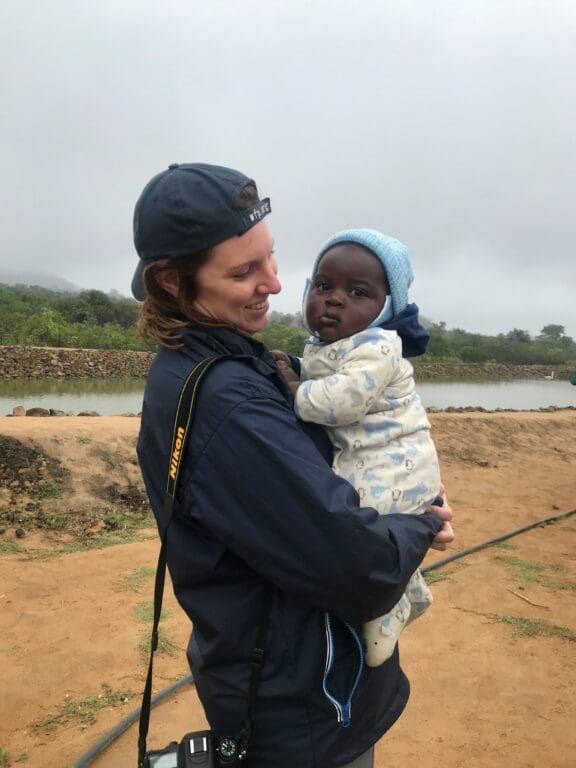
3. What do you do in your daily work?
Basically, I’m in charge of getting us money and explaining what we’re doing with the money! On a day-to-day basis, I’m juggling multiple roles. As head of Donor Relations, I’m partially responsible for mobilizing resources for our programs; that includes coordinating funding proposals, searching for new opportunities, keeping track of which activities are funded and which aren’t, and liaising with our donors at local and global level. As head of communications, I’m telling our story: making sure we tell it ourselves with words and photos, pitching and responding to media, feeding the Twitter machine, and so on. And as head of reports, I’m making sure we’re accurately accounting for the funds we receive and programs we run. Of course, I don’t do this by myself, but have a team I manage and fully rely on.
4. What was your most difficult moment working for WFP?
There are lots of little difficult moments. It’s a lot of pressure to feel responsible for finding the resources for programs – like if I don’t do a good job on a proposal, somebody might not eat. Otherwise, when Zimbabwe was struck by Cyclone Idai in March – along with Mozambique and Zambia – that was nuts. There was so much information flying around, so much information required, both internally for WFP and externally for donors and media. It was incredibly overwhelming, but wow, it was exciting as well.
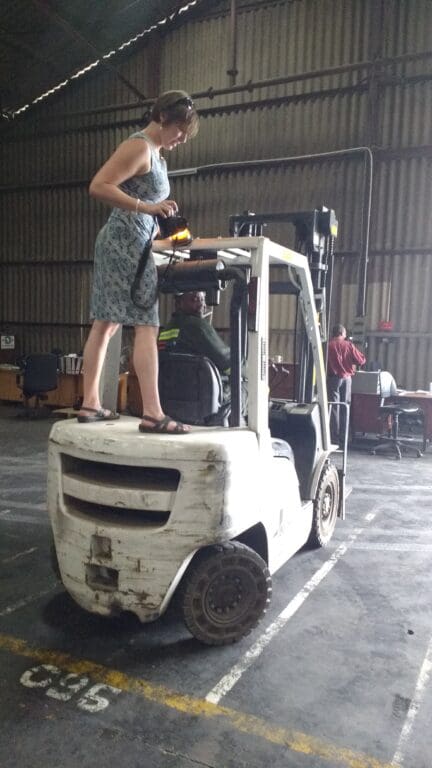
5. What was your proudest moment working for WFP?
Honestly, when I first got to Zimbabwe, and put on my vest for the first time – that khaki vest with all the pockets that I’ve seen in photos of humanitarians and journalists – I felt very proud. This was it. I was legit. I was part of this life-saving team.
6. Where has your job taken you?
I joined WFP in New York, and seven months later was in Zimbabwe. That was a pretty big move. Of course, I’ve visited our offices in South Africa and Rome, but otherwise, I’m looking forward to whatever’s next.
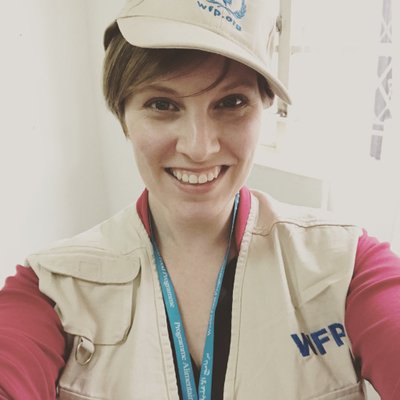
7. How does your family and or community feel about your role at WFP?
My family is very proud of me. My mom is a teacher and has started using Zimbabwe as an example for issues of global food security. My dad likes to reach out to local businesses – I’ve probably given as many business cards and brochures to him as I have to Ambassadors! – and see if they’d like to support WFP. My hometown church had me give a “sermon” the last time I was home – they got a PowerPoint about Zimbabwe, WFP and the Global Goals!
8. What inspires you or motivates you to continue working for WFP?
The fact of the matter is I can see the issues and see the need on a daily basis. You can know it exists, all over the world, even in your own home (The US has hunger for sure! Ohio’s got problems!), but not see it. So, it feels more real, and at the same time, so does the impact of the work. I can see the difference in real people’s lives, and that’s incredibly motivating.
9. Is there a particular anecdote about your experience at WFP you would like to share?
Once I was taking one of our donor partners out to the field so they could see the impact their contribution was having for one community. A woman stood and told about the problems her family was facing, how they had been reliant even on foraging to survive. She held up a huge baobob seed pod and told us how she had had to gather these and grind the seeds into a flour that she could mix with water to make a very basic porridge for her children. But now, she said, with the assistance we had provided, she didn’t need it anymore. And she handed me the seed pod. I still have it at home.
This year, World Humanitarian Day is honoring women who have improved countless lives. Name a woman who has inspired you and tell us why? I’m inspired by all the women around the world stepping up to take control of their communities. Stacy Abrams, Elizabeth Warren, Alexandria Ocasio-Cortez – and of course the OG, Ruth Bader Ginsberg. They understand that you can’t say you’re not “into” politics. Our every day lives are shaped by politics. I myself plan to run for local office someday. I think I’ll make food justice a cornerstone of my platform.
